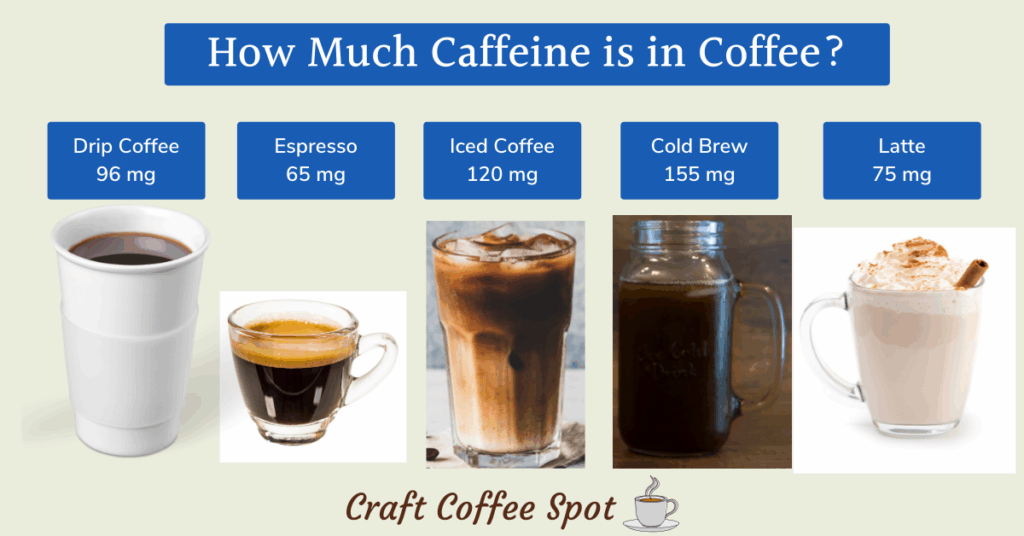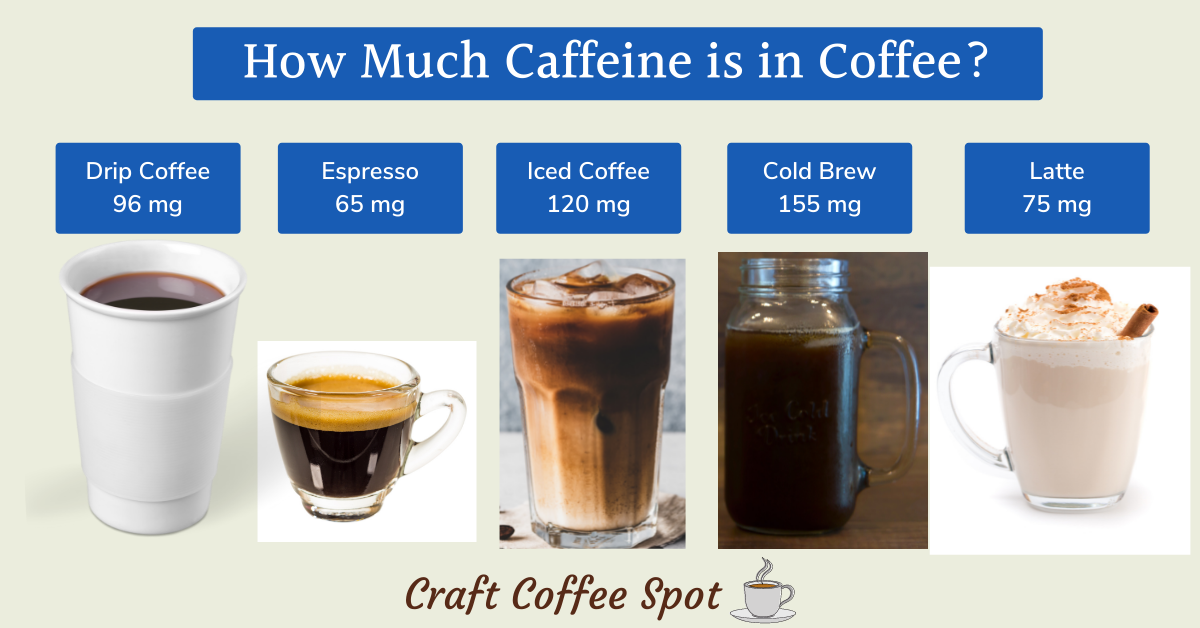
The Caffeine Conundrum: Decoding How Much Caffeine is in a Cup of Folgers Coffee
For many, the morning ritual isn’t complete without a steaming cup of coffee. It’s a daily necessity, a source of energy, and a comforting routine. But have you ever stopped to consider what fuels this ubiquitous beverage? The answer, of course, is caffeine. And when it comes to a popular brand like Folgers, a fundamental question arises: How much caffeine is in a cup of Folgers coffee?
This article dives deep into the caffeine content of Folgers coffee, examining the factors that influence it, the potential effects of caffeine consumption, and how Folgers stacks up against other coffee brands. We’ll explore the science behind caffeine, the different Folgers coffee products, and how to make informed choices about your daily caffeine intake. Get ready to become a caffeine connoisseur!
Understanding Caffeine: The Energy Booster
Caffeine is a naturally occurring stimulant found in the leaves, seeds, and fruits of various plants, most notably coffee beans. It works by blocking adenosine, a neurotransmitter that promotes relaxation and sleepiness. By blocking adenosine receptors in the brain, caffeine increases alertness and reduces fatigue. This is why a cup of coffee can provide a much-needed jolt of energy.
The effects of caffeine can vary depending on individual factors such as metabolism, body weight, and tolerance. Some people are highly sensitive to caffeine, experiencing jitters, anxiety, and insomnia even with small doses. Others can consume significant amounts of caffeine without noticeable effects. Generally, moderate caffeine consumption (up to 400 milligrams per day) is considered safe for most adults, according to the Mayo Clinic. This is roughly equivalent to four cups of brewed coffee.
Folgers Coffee: A Household Name
Folgers has been a staple in American households for over 150 years. Known for its accessible price point and widespread availability, Folgers offers a range of coffee products, from ground coffee to instant coffee and K-Cup pods. The brand’s popularity makes understanding the caffeine content of Folgers coffee particularly relevant for a large segment of the population.
How Much Caffeine is in a Cup of Folgers Coffee? The Breakdown
The caffeine content of Folgers coffee can vary depending on several factors, including the type of coffee, the brewing method, and the serving size. However, we can provide some general estimates based on available information:
- Brewed Folgers Coffee: A standard 8-ounce cup of brewed Folgers coffee typically contains around 90-100 milligrams of caffeine. This is a common benchmark for brewed coffee in general.
- Folgers Instant Coffee: Instant coffee generally contains less caffeine than brewed coffee. An 8-ounce cup of Folgers instant coffee usually has about 60-70 milligrams of caffeine.
- Folgers K-Cup Pods: The caffeine content in Folgers K-Cup pods can vary depending on the specific blend. However, most Folgers K-Cup pods contain a similar amount of caffeine to brewed coffee, around 90-100 milligrams per serving.
It’s important to note that these are estimates. The exact amount of caffeine in a cup of Folgers coffee can fluctuate. Always refer to the product packaging for the most accurate information.
Factors Influencing Caffeine Content
Several factors can influence how much caffeine is in a cup of Folgers coffee:
- Type of Coffee Bean: Different coffee bean varieties contain varying levels of caffeine. Robusta beans, for example, typically have more caffeine than Arabica beans. Folgers primarily uses Arabica beans, which generally contributes to a moderate caffeine level.
- Roast Level: The roasting process can impact caffeine levels. Generally, darker roasts tend to have slightly less caffeine than lighter roasts, although the difference is often negligible.
- Brewing Method: The brewing method can affect the caffeine extraction process. Methods like French press, which involve longer brewing times, may extract more caffeine than drip coffee makers. However, the difference is usually modest.
- Serving Size: Obviously, the larger the serving size, the more caffeine you’ll consume.
Understanding these factors can help you make informed choices about your coffee consumption and tailor your intake to your individual needs.
Comparing Folgers to Other Coffee Brands
How does Folgers coffee stack up against other popular coffee brands in terms of caffeine content? Let’s take a look at some general comparisons:
- Starbucks: Starbucks coffee, known for its stronger brews, generally contains more caffeine than Folgers. A tall (12-ounce) brewed coffee at Starbucks can contain around 235 milligrams of caffeine, significantly more than a standard cup of Folgers.
- Dunkin’: Dunkin’ coffee falls somewhere in between Folgers and Starbucks. A medium (14-ounce) cup of Dunkin’ brewed coffee typically contains around 150 milligrams of caffeine.
- Home-brewed Coffee: The caffeine content of home-brewed coffee can vary widely depending on the coffee beans used, the brewing method, and the amount of coffee grounds. However, a standard cup of home-brewed coffee is often comparable to Folgers in terms of caffeine.
These comparisons highlight that Folgers coffee generally offers a moderate level of caffeine, making it a good choice for those seeking a balanced caffeine experience.
Potential Effects of Caffeine Consumption
Caffeine, when consumed in moderation, can offer several benefits. It can improve alertness, enhance cognitive function, boost physical performance, and even elevate mood. However, excessive caffeine consumption can lead to adverse effects.
Common side effects of too much caffeine include:
- Anxiety and Jitters: Caffeine can stimulate the nervous system, leading to feelings of anxiety, nervousness, and jitters.
- Insomnia: Caffeine can interfere with sleep, making it difficult to fall asleep or stay asleep.
- Digestive Issues: Caffeine can stimulate the digestive system, potentially causing heartburn, upset stomach, or diarrhea.
- Rapid Heartbeat: In some individuals, caffeine can cause a rapid or irregular heartbeat.
- Headaches: While caffeine can sometimes alleviate headaches, it can also trigger them in sensitive individuals.
It’s crucial to pay attention to your body’s response to caffeine and adjust your intake accordingly. If you experience any negative side effects, consider reducing your caffeine consumption or switching to decaffeinated options.
Caffeine and Health Considerations
While moderate caffeine consumption is generally safe for most adults, certain individuals should exercise caution or avoid caffeine altogether:
- Pregnant or Breastfeeding Women: The American College of Obstetricians and Gynecologists (ACOG) recommends that pregnant women limit their caffeine intake to 200 milligrams per day. Caffeine can cross the placenta and affect the developing fetus.
- Individuals with Anxiety Disorders: Caffeine can exacerbate anxiety symptoms.
- People with Heart Conditions: Caffeine can increase heart rate and blood pressure, potentially posing risks for individuals with heart conditions.
- Children and Adolescents: Children and adolescents are more sensitive to the effects of caffeine and should generally avoid it.
Consult with your doctor if you have any health concerns or are unsure about your caffeine intake.
Making Informed Choices About Your Coffee Consumption
Understanding how much caffeine is in a cup of Folgers coffee is just the first step. Here’s how to make informed choices about your coffee consumption:
- Read Product Labels: Always check the product packaging for caffeine content information.
- Consider Your Sensitivity: Pay attention to how caffeine affects you. If you are sensitive, start with smaller servings or choose decaffeinated options.
- Monitor Your Daily Intake: Keep track of your caffeine consumption from all sources, including coffee, tea, soda, energy drinks, and even some foods.
- Brew at Home: Brewing coffee at home gives you more control over the strength and caffeine content.
- Explore Alternatives: If you want to reduce your caffeine intake, consider alternatives like herbal teas, decaffeinated coffee, or chicory coffee.
By being mindful of your caffeine consumption, you can enjoy the benefits of coffee while minimizing potential risks. The caffeine in Folgers coffee, when consumed responsibly, can be a part of a healthy lifestyle.
The Bottom Line: Navigating the World of Folgers Caffeine
So, how much caffeine is in a cup of Folgers coffee? The answer, as we’ve seen, is around 90-100 milligrams for brewed coffee and K-Cup pods, and slightly less for instant coffee. This makes Folgers a moderate caffeine option, suitable for many coffee drinkers.
By understanding the factors that influence caffeine content, the potential effects of caffeine, and your own individual sensitivity, you can make informed decisions about your coffee consumption. Whether you’re a long-time Folgers fan or new to the brand, knowing the caffeine content allows you to enjoy your coffee responsibly and embrace the energy boost it provides. Remember to always check the product packaging for the most up-to-date information and consult with your doctor if you have any concerns about your caffeine intake.
Ultimately, the key to enjoying coffee is moderation and awareness. Knowing how much caffeine is in a cup of Folgers coffee empowers you to make the best choices for your health and well-being.
[See also: Related Article Titles]


